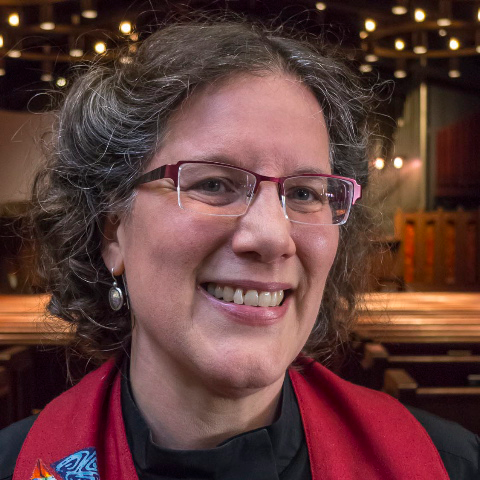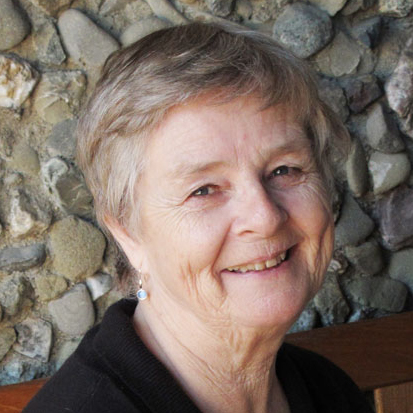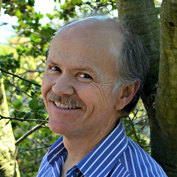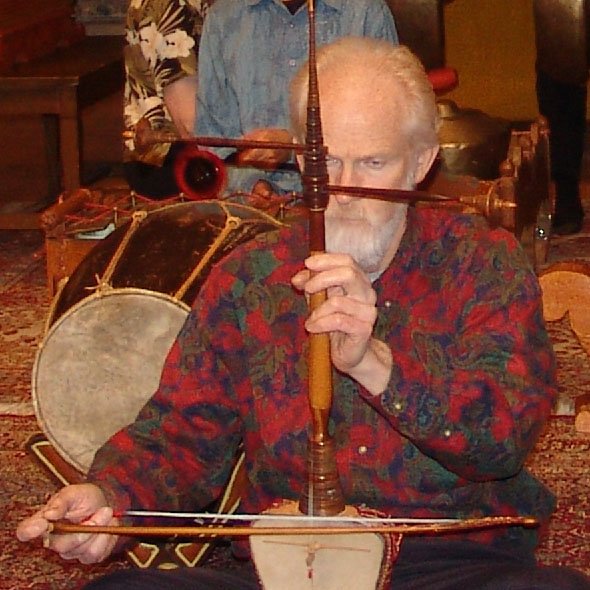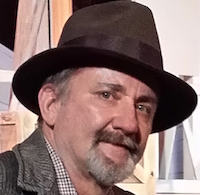{podcast_episode 180}
Good morning everyone, before I begin my sermon, I’d like to acknowledge that yesterday marked the beginning of Ramadan, the most sacred time of year in the Muslim tradition, and ask that we take a moment to acknowledge our interconnectedness with all Muslim UUs and with Muslims across the world. Thank you.
I’m so glad to be here with you this morning. As most of you know, I work as a chaplain for the Kaiser Permanente hospital in Antioch. In my work, it’s not very often I get the chance to preach – thank you for giving me the opportunity this morning. There’s been a sermon rolling around in my mind for a while now, and in a happy coincidence, I think perhaps it’s something that’s relevant to this community now. The sermon I’m sharing with you today is about change and transitions and how sometimes, despite now wanting to be in the midst of them, I have found myself profoundly touched by hearing the stories of how patients and others that I’ve gotten to know have engaged the transitions that came upon them.
Many of you may not know this about me, but I’m a passionate country music fan. I chose my sermon title this morning, “On the Road Again” from the classic Willie Nelson song. I love that song, and you can find me singing along with it as I drive Highway 4 out to the hospital. But while I love the melody, I’m not actually fond of the words. To be constantly on the road again, constantly in the midst of change, constantly ready for unknown experiences, doesn’t appeal to me. I’m more of a homebody. I like things to remain pretty much the same. My sense is that this is true for most of us, that most of us do not embrace major change with open arms. We might like to take a nice road trip – with a good GPS system and a AAA card – but we’re not eager to be ‘on the road again’ all the time.
Kaiser has an employee health program that focuses on encouraging us all to get out and walk more. Each day they email an inspirational quotation. A little while back, it was, “Knowing where you’re going is the first step to getting there.” [1]
I sat and read that quote a few times. For me, it begged the question: Do you know where you’re going?
I’m a pretty organized person, and most days I could tell you I know where I’m going – to work, then to the grocery store, then to the bank if there’s time, and then home again to put the kids to bed. From this perspective, my schedule is pretty well set.
And yet, one of the gifts of the work that I do as a hospital chaplain is to be constantly reminded that where you think you’re going is not always where you end up! No one has Thursday afternoon at 2 penciled in for a visit to the Emergency Room. And absolutely no one has on their calendar a time to be diagnosed with cancer, or dementia, or kidney failure. Working in health care is a constant reminder that life is always changing, and often beyond our control.
As part of my work, I spend a lot of time talking with patients who have new diagnoses and patients who are being forced to accept physical limitations that have a major impact on their lives. In these cases, our initial human responses one person to the next are much the same: anger, disbelief, questioning why, wondering with trepidation what’s ahead. Many of us here may know very well those overwhelming moments of panic.
However, while I have noticed that our initial human reactions are much the same, I have also noticed that what happens next is individual. Some people are able to accept these major changes in their lives much more quickly than others. Over the years, I have listened with curiosity to try and identify why this is.
And the result I have come to is that these patients – the ones who are able to react to the major changes in their lives with easy grace – are the people who do not feel that what is core to their lives is being challenged or changed by physical illness and ailments.
These are the rare people who, despite the loss of a limb or in the face of a major cancer diagnosis, are able to find peace by staying grounded in those things – almost always intangible things – that are most important to them.
How do they do this? I’m still figuring that out as the years go by. But here is some of what I have learned. There are three main sentences that I hear quite often from the rare people who fall into this category. They are:
#1 – “There are still so many things to be thankful for.”
#2 – “It is what it is, and I can’t change it.”
#3 – “God has helped me before, and God will help me through this too.”
To me, these three sentences are representative of the three topics of gratitude, acceptance and faith.
We’ll start with gratitude. Here put into words by Erma Bombeck, after facing breast cancer:
An estimated 1.5 million people are living today after bouts with breast cancer. Every time I forget to feel grateful to be among them, I hear the voice of an eight-year-old named Christina, who had cancer of the nervous system. When asked what she wanted for her birthday, she thought long and hard and finally said, “I don’t know. I have two sticker books and a Cabbage Patch doll. I have everything!” Mrs. Bombeck concludes, “The kid is right.” [2]
Another illustration: Years ago, a 12-year-old boy named David was born without an immune system. He underwent a bone marrow transplant in order to correct the deficiency. Up to that point he had spent his entire life in a plastic bubble in order to prevent exposure to common germs, bacteria, and viruses that could kill him. He lived without ever knowing human contact. When asked what he’d like to do if and when released from his protective bubble, he replied, “I want to walk barefoot on grass, and touch my mother’s hand.”[3]
Patients I meet who are able to keep an awesome sense of gratitude are able to take what life brings them, because they see it in the context of a life truly overflowing with blessings.
#2 – Acceptance
“It is what it is, and I can’t change it.”
While this sentence may sound defeatist, most of the patients I hear it from don’t mean it that way. They simply mean that they are clear they’re not going to use their energy to try to argue/fight/push their way out of the situation, particularly when it’s not a situation that can be changed.
In her book Kitchen Table Wisdom, doctor, author and counselor Rachel Naomi Remen tells a story about when she was 35 years old and learning how to make jewelry. She cast a beautiful silver ring, her first, and was very proud of its design. She took it with her to a local retreat on the California coast, where many people noticed and admired it. At their recommendation, she took her ring to show to a local jeweler.
She writes, “The jeweler, a gentle man and a gifted artist, had offered me tea and we spent an hour or so talking about beauty and the ways in which art reminds people of the soul. Heady conversation for a young academic physician. In the end, I left my ring with him so that he could recast it and sell it to others… During the night, a wild and violent storm…hit the coast. At breakfast, I was shocked to hear that…a stretch of Route 1 had fallen into the ocean. The gallery where I had left my ring had stood next to the stretch of road that had washed into the Pacific. The building was gone and my ring with it.”
“Through my numbness, I could hear several inner voices commenting on my loss. The loudest was my father’s saying, ‘This never would have happened if you hadn’t allowed a total stranger to exploit you and make a profit from your design.’ And my mother: ‘You are so careless! You can never be trusted with anything valuable.’… In anguish, I went to the edge of the cliffs and stood looking down at the Pacific, still wild from yesterday’s storm. Down there somewhere was my ring. As I watched the ocean hammer the cliffs, it began to occur to me that there was something rather natural, even inevitable, about what had happened. Pieces of the land had been falling into the ocean for millions of years. Perhaps all those blaming voices were wrong. There was nothing at all personal in it, just some larger process at work.
“I looked at the empty space on my finger again… For the first time, I faced a loss with a sense of curiosity. What would come to fill up this space? Would I make another ring? Or would I fid another ring in a secondhand shop, or even in another country? Perhaps someday someone I had not even met would give me a ring because he loved me. I was 35 years old and I had never trusted life before… Life had been about hanging on to what you had…. Yet this empty space had become different. It held all the excitement and anticipation of a wrapped Christmas present.” [4]
Patients I meet who are able to accept major changes in their life and health see clearly, often from experience, that to fight what we are given is to miss the chance to be in connection with nature and with the timeless stream of life.
Which brings us to #3, Faith.
“God has helped me through this before, and God will help me through it again.”
In my experience with patients, this is often a personal creed that has been born from experience. I have met patients who only narrowly missed being killed in war, who have been through cancer four times, who have grown up homeless on the street, who have buried all three of their children.
Life has taught them that they will get through it. For some, they do this with the help of God, or Higher Power. For others, it is a general belief in the order of the universe, and that things are as they are supposed to be. For others, it is a deep belief in oneself, and others who will help.
In the words of Albert Camus, “In the depths of winter, I finally learned that within me there lay an invincible summer.”
Episcopal priest and author Barbara Brown Taylor writes, “Popular religion focuses so hard on spiritual success, that most of us do not know the first thing about the spiritual fruits of failure. When we fall ill, lose our jobs, wreck our marriages, … alienate our children … [most of us] find it hard to shake the shame of getting lost in our lives. And yet, if someone asked us to [point to] the times in our lives that changed us for the better, a lot of those times would be wilderness times. When the safety net has split, when the resources are gone, when the way ahead is not clear, the sudden exposure can be both frightening and revealing. We spend so much of our time protecting ourselves from this exposure that a weird kind of relief can result when we fail. To lie flat on the ground with the breath knocked out of you is to find a solid resting place.”[5]
I think Barbara Brown Taylor is right in her assessment that most religion, Unitarian Universalism included, doesn’t talk enough about times of loss, failure, and having the wind knocked out of you.
But I think we would do well to go back and revisit a great sermon of one of our greatest Unitarian ancestors, Theodore Parker. Rev. Parker preached a monumental and historically significant sermon called “The Transient and Permanent in Christianity” in the year 1841. At that time in history, his sermon was considered scandalous and as a result Rev. Parker was ostracized by many of his Unitarian colleagues. In it, he posited the ideas that Jesus was fully human and that the Bible is not infallible. He also advocated that the structures of church and religion are transient and of less importance than the actual teachings and words of Jesus. He admonished his listeners for placing their energies into arguing about doctrines rather than focusing on the real work of being true to Jesus’ teachings.
He said, “So the Christianity of Jesus is permanent, though what passes for Christianity with Popes and catechisms, with sects and churches, in the first century or in the nineteenth century, proves transient.”[6]
The context of his sermon in the historical development of Christianity and Unitarianism is fascinating, and worth a separate sermon, but for today, I want to consider it on a personal level. The structures we build, whether our homes, our businesses, even our churches, are worthy of our time, but transient. We are called to figure out what things in our life are permanent, not to be shaken by the ever-changing nature of life. Hear again the words of Barbara Brown Taylor: “To lie flat on the ground with the breath knocked out of you is to find a solid resting place.” This, to me, is the gift of change – it forces us to grow in our abilities to identify and stay connected to the permanent, rather than the transient. It challenges us to root our lives in the most important things – like gratitude, acceptance and faith.
I am thankful for my many years of being a minister affiliated with this community. It has been my experience that this church is a place that embraces and lives gratitude, acceptance and faith. In this time of major change within the church, it is my belief that all of these traits will serve you well, and it is my hope that this time of major change also brings unexpected blessings.
And so, in the end, the truth is that I may know where I’m going. Whether or not I make it to work and to the grocery store and to the bank are uncertain. But we can look at the changes in our lives as opportunities to remember that we can be in control of the things that truly matter. I am going to stay true to myself. I’m going to stay true to God as I understand God to be. I’m going to keep trying to be a better person. I’m always going to remember how fortunate I am. This is where I’m going. And you? Where are you going? Perhaps today you can take a minute to write down your thoughts. While you and I may not want to be ‘on the road again’, some of the remarkable patients I work with have shown me that it is in fact possible, with work, to always know where you’re going.
[1] KP Walk! Kaiser Permanente Employee Program.
[2] Erma Bombeck, Redbook, October,1992
[3] http://www.sermonillustrations.com/a-z/t/thanksgiving.htm. Accessed 6/27/2014.
[4] Rachel Naomi Remen, Kitchen Table Wisdom, p. 185-187.
[5] Barbara Brown Taylor, An Altar in the World, pp. 78
[6] Theodore Parker, “A Discourse of the Transient and Permanent in Christianity”. Delivered in Boston, MA, on May 19, 1841. Accessed at http://digitalcommons.unl.edu/cgi/viewcontent.cgi?article=1013&context=etas on June 28, 2014.
Copyright © 2014, Rev. Lisa Sargent. All Rights Reserved.







